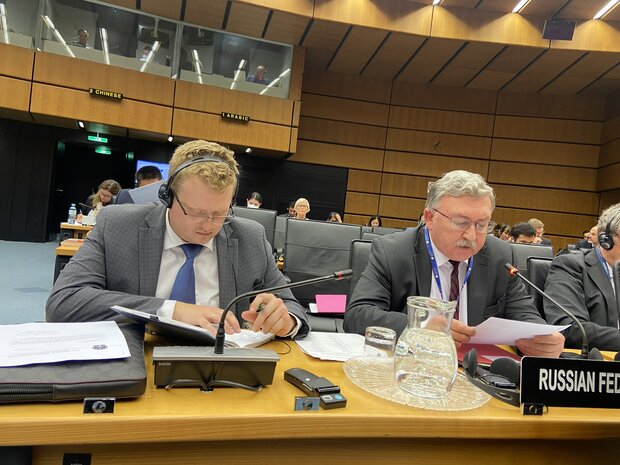Russia has slammed the threats by Britain, France, and Germany to trigger the snapback of sanctions against Iran as an “irresponsible” and “unlawful” rhetoric, urging the trio to focus their efforts on finding a solution to the situation they themselves created.
The snapback mechanism under the 2015 Iran nuclear deal, officially known as the Joint Comprehensive Plan of Action (JCPOA), allows any party to the deal to restore United Nations sanctions on Iran if it violates the agreement.
However, back in 2018, the United States unilaterally withdrew from the JCPOA and implemented a “maximum pressure” policy against the Islamic Republic, while the other parties to the deal – Britain, France, Germany, Russia, and China – failed to secure Iran’s interests under the agreement.
Iran waited an entire year after the U.S. withdrawal as the three European powers promised to offset the impact of U.S. sanctions, but as those efforts failed, it ultimately began to reduce its nuclear obligations in a remedial move envisioned within the JCPOA.
Speaking at a session of the International Atomic Energy Agency (IAEA)’s Board of Governors on Tuesday, Russia’s Permanent Representative to International Organizations in Vienna, Mikhail Ulyanov, said the European trio, having violated their obligations under UN Security Council Resolution 2231, its Annex B, and the JCPOA, now intend to punish Iran for their own inability to revive the deal.
“We have drawn attention to the threats of Great Britain, Germany and France to use the ‘snapback’. We consider such rhetoric not only irresponsible, but also unlawful,” Ulyanov said.
“In this regard, we recommend that Berlin, London and Paris stop giving in to phantom pains over the snapback and focus their efforts on finding a political and diplomatic way out of the situation they have created,” he added.
Meanwhile, the European Union’s Ambassador to the International Organizations in Vienna, Carl Hallergard, said at the Tuesday session that the EU remains committed to a diplomatic solution to address the issues surrounding the implementation of the JCPOA.
Hallergard blamed Iran for increasing the risk of a nuclear proliferation crisis in the region, claiming that the country has “gravely” departed from its JCPOA commitments, without mentioning the violations of the deal by the other parties.
He also called on Iran to engage effectively with the IAEA without any further delay and expressed support for IAEA Director-General Rafael Grossi’s efforts “in the pursuit of a constructive engagement with Iran to achieve the necessary cooperation and address issues that need to be urgently resolved.”
RHM


























Your Comment